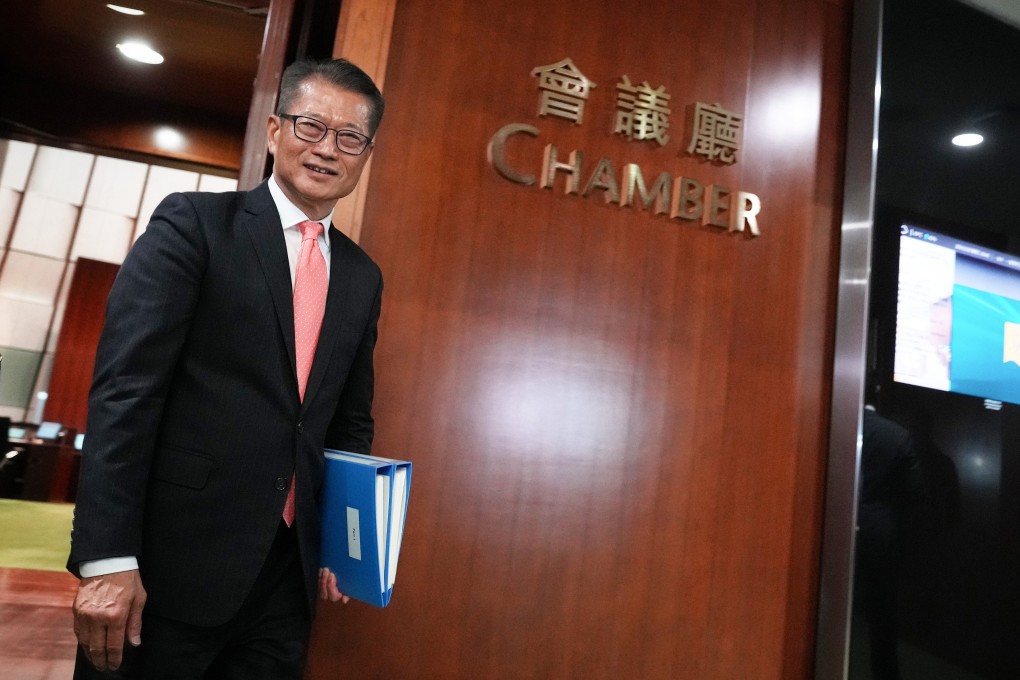Hong Kong budget hopes to restore city’s fiscal health, look for new revenues and growth as finance chief axes property curbs in surprise move
- Financial Secretary Paul Chan surprises market by going for a complete removal of all property cooling measures with immediate effect
- Chan also introduces a more targeted tax for the rich, in line with other advanced economies

Announcing the axing of the decade-old property measures, Financial Secretary Paul Chan Mo-po surprised the market by going for a complete removal with immediate effect, one of several unexpected moves in his spending blueprint.
Another key policy shift he took to boost the government’s coffers was to introduce a more targeted tax for the rich, in line with other advanced economies.
Salaries tax for individuals making at least HK$5 million will go up, along with the introduction of a progressive rating system for domestic properties, Chan revealed, as he steered clear of raising charges of public services and basic utilities that would have affected a wider cross-section of the public.
Boosting economic recovery, facing rising deficit
In his budget, themed “Advance with Confidence, Seize Opportunities, Strive for High-quality Development”, the finance chief put the focus squarely on economic recovery and bolstering confidence as he unveiled plans to deepen innovation and technology, seek new markets, and attract tourism and investment while taking full advantage of opportunities offered by closer integration with mainland China.
